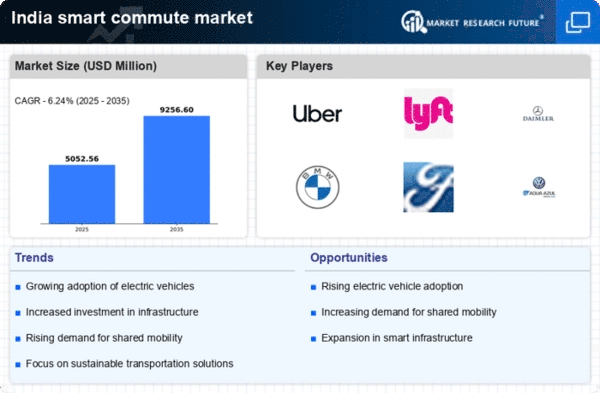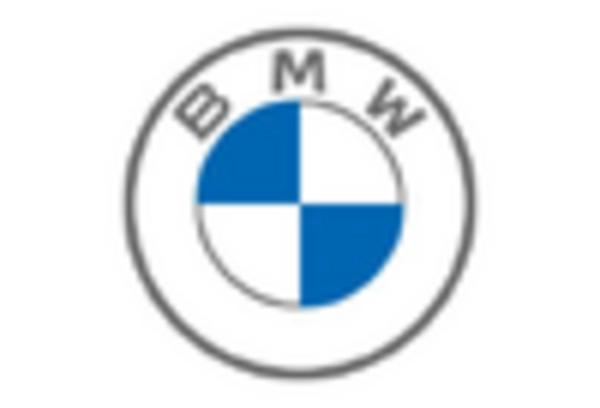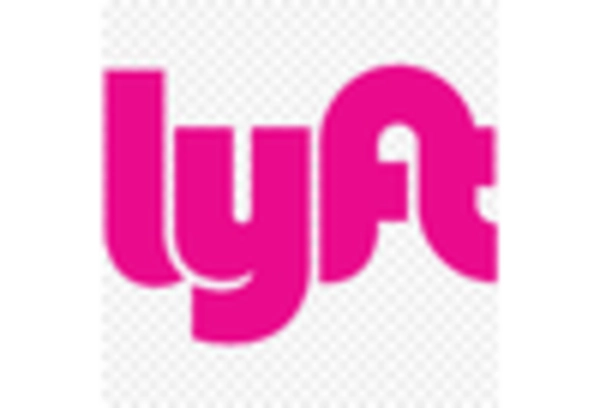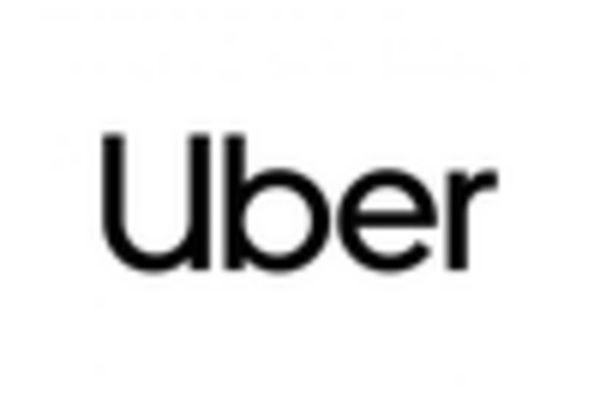Rising Consumer Expectations
Rising consumer expectations for convenience and efficiency in transportation also influence the smart commute market in India. As urban dwellers seek more flexible and reliable commuting options, there is a growing preference for services that offer seamless integration of various modes of transport. Consumers are increasingly looking for solutions that provide real-time updates, easy payment options, and personalized experiences. This shift in consumer behavior is prompting service providers to innovate and enhance their offerings. For instance, multi-modal transport solutions that combine ride-sharing, public transport, and bike-sharing are gaining popularity. The market is expected to adapt to these changing preferences, with a projected increase in user engagement by 25% over the next few years, indicating a strong demand for smarter, more user-centric commuting solutions.
Urbanization and Population Growth
India's rapid urbanization and population growth are significantly influencing the smart commute market. With over 600 million people expected to reside in urban areas by 2031, the demand for efficient and sustainable transportation solutions is becoming increasingly critical. Urban congestion is a pressing issue, with traffic delays costing the economy an estimated $22 billion annually. This scenario creates a fertile ground for the smart commute market, as innovative solutions such as app-based ride-sharing and smart public transport systems emerge to alleviate congestion. The increasing number of vehicles on the road, projected to reach 300 million by 2030, further underscores the necessity for smarter commuting options. Consequently, urban planners and policymakers are likely to prioritize investments in smart commute technologies to enhance mobility and reduce environmental impact.
Government Initiatives and Policies
The smart commute market in India is experiencing a boost due to various government initiatives that enhance urban mobility. Policies such as the National Electric Mobility Mission Plan (NEMMP) and the Faster Adoption and Manufacturing of Hybrid and Electric Vehicles (FAME) scheme are designed to promote sustainable transport solutions. These initiatives not only encourage the adoption of electric vehicles but also support the development of necessary infrastructure, such as charging stations. As a result, the market is projected to grow at a CAGR of approximately 20% over the next five years, indicating a strong commitment from the government to facilitate a transition towards smarter commuting options. This proactive approach is likely to attract investments and foster innovation within the smart commute market, ultimately benefiting urban commuters across the country.
Technological Advancements in Mobility
The smart commute market in India is being propelled by rapid technological advancements that enhance mobility solutions. Innovations in artificial intelligence, big data analytics, and the Internet of Things (IoT) are transforming traditional commuting methods. For instance, smart traffic management systems are being implemented in major cities to optimize traffic flow and reduce congestion. Additionally, mobile applications that provide real-time information on public transport schedules and availability are gaining traction among commuters. The integration of these technologies is expected to improve the overall commuting experience, making it more efficient and user-friendly. As a result, the smart commute market is likely to witness a surge in adoption rates, with an estimated increase of 30% in smart mobility solutions over the next few years, reflecting the growing reliance on technology in daily commuting.
Environmental Concerns and Sustainability
Growing environmental concerns are driving the smart commute market in India towards more sustainable practices. With air pollution levels in major cities reaching alarming heights, there is an increasing awareness of the need for cleaner transportation options. The smart commute market is responding to this demand by promoting electric vehicles, carpooling, and public transport systems that reduce carbon emissions. According to recent studies, transitioning to electric vehicles could potentially reduce urban air pollution by up to 70%. This shift not only addresses environmental issues but also aligns with global sustainability goals. As consumers become more environmentally conscious, the demand for sustainable commuting options is likely to rise, further propelling the growth of the smart commute market in India.
















